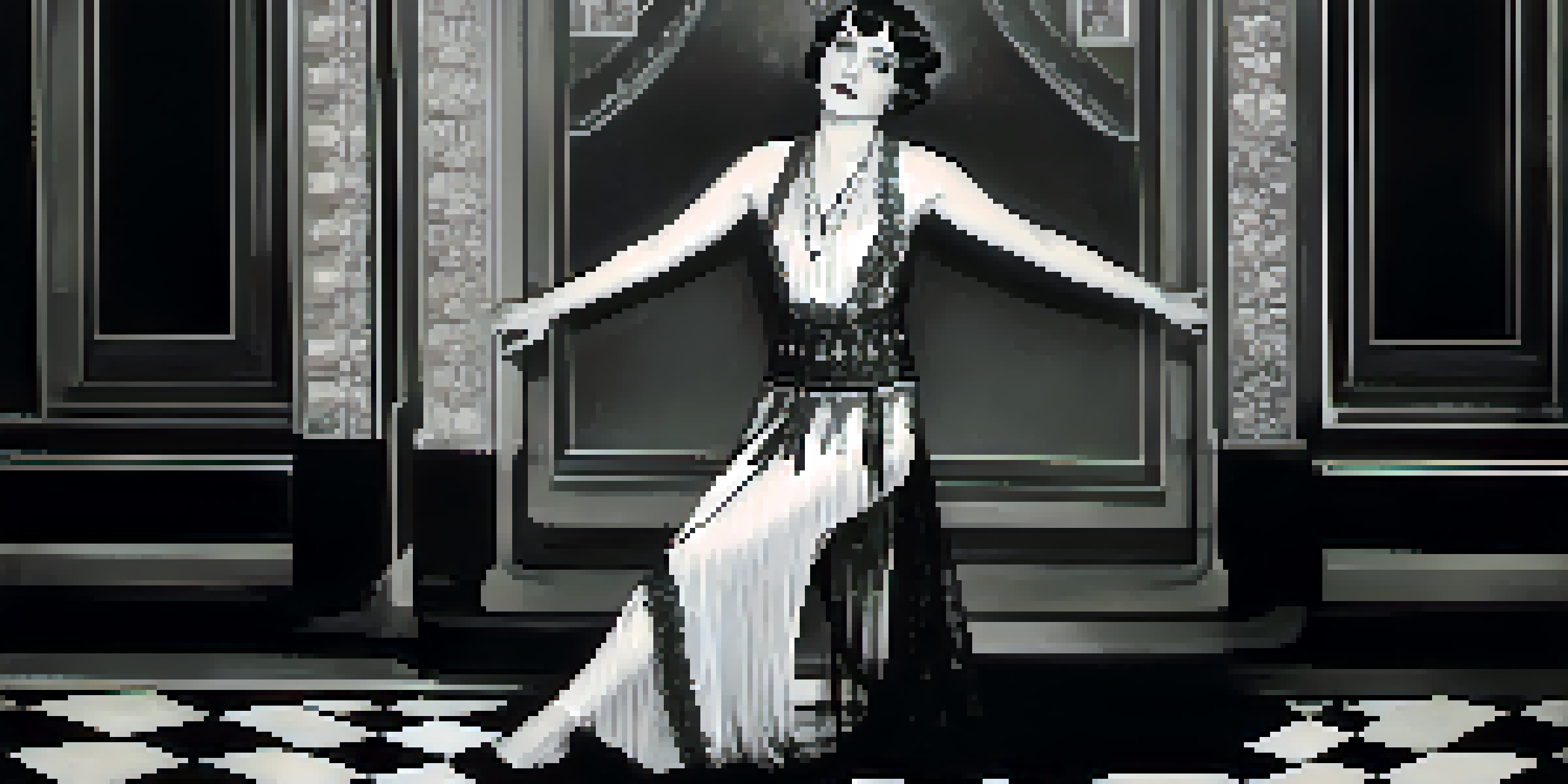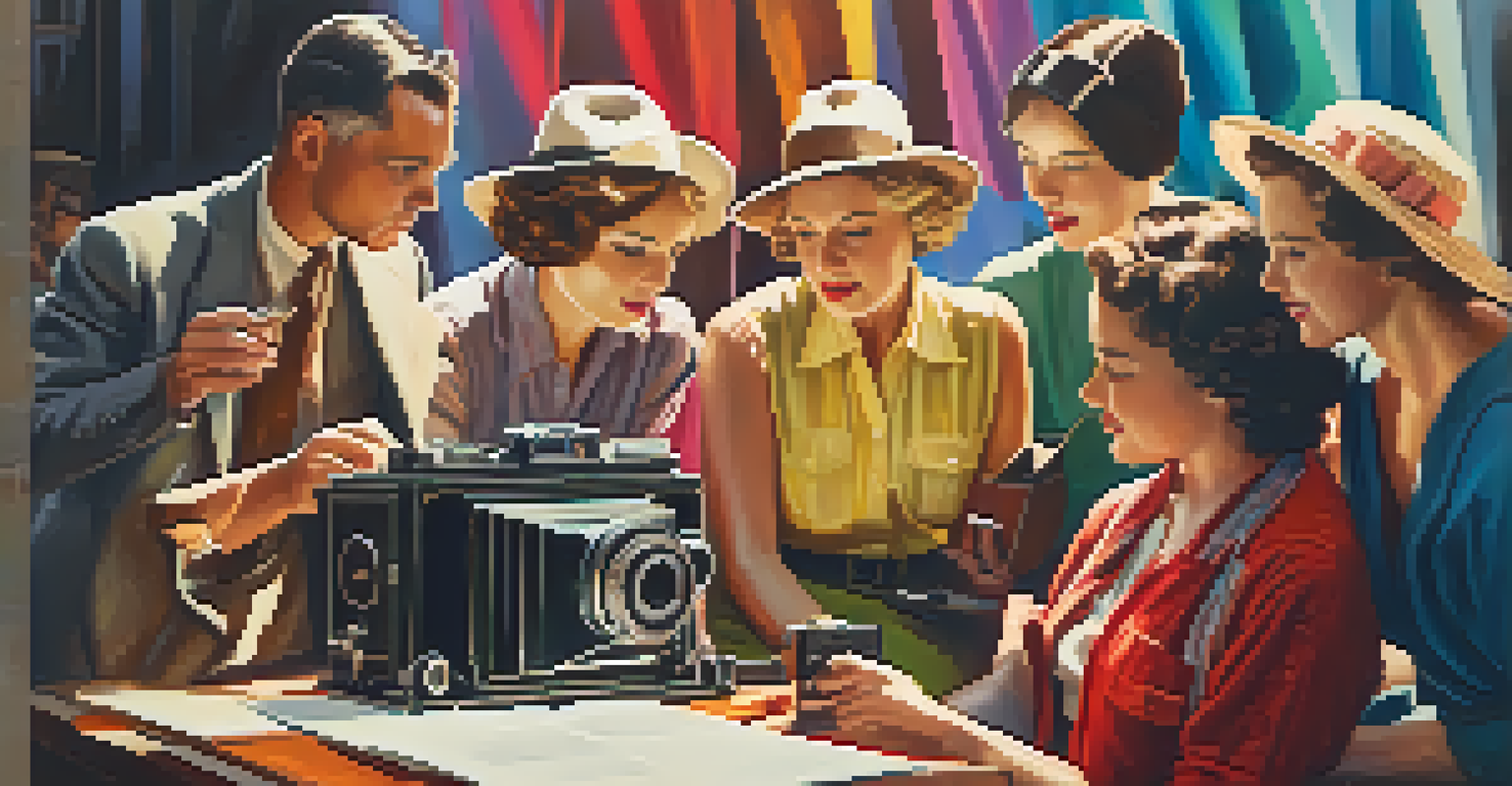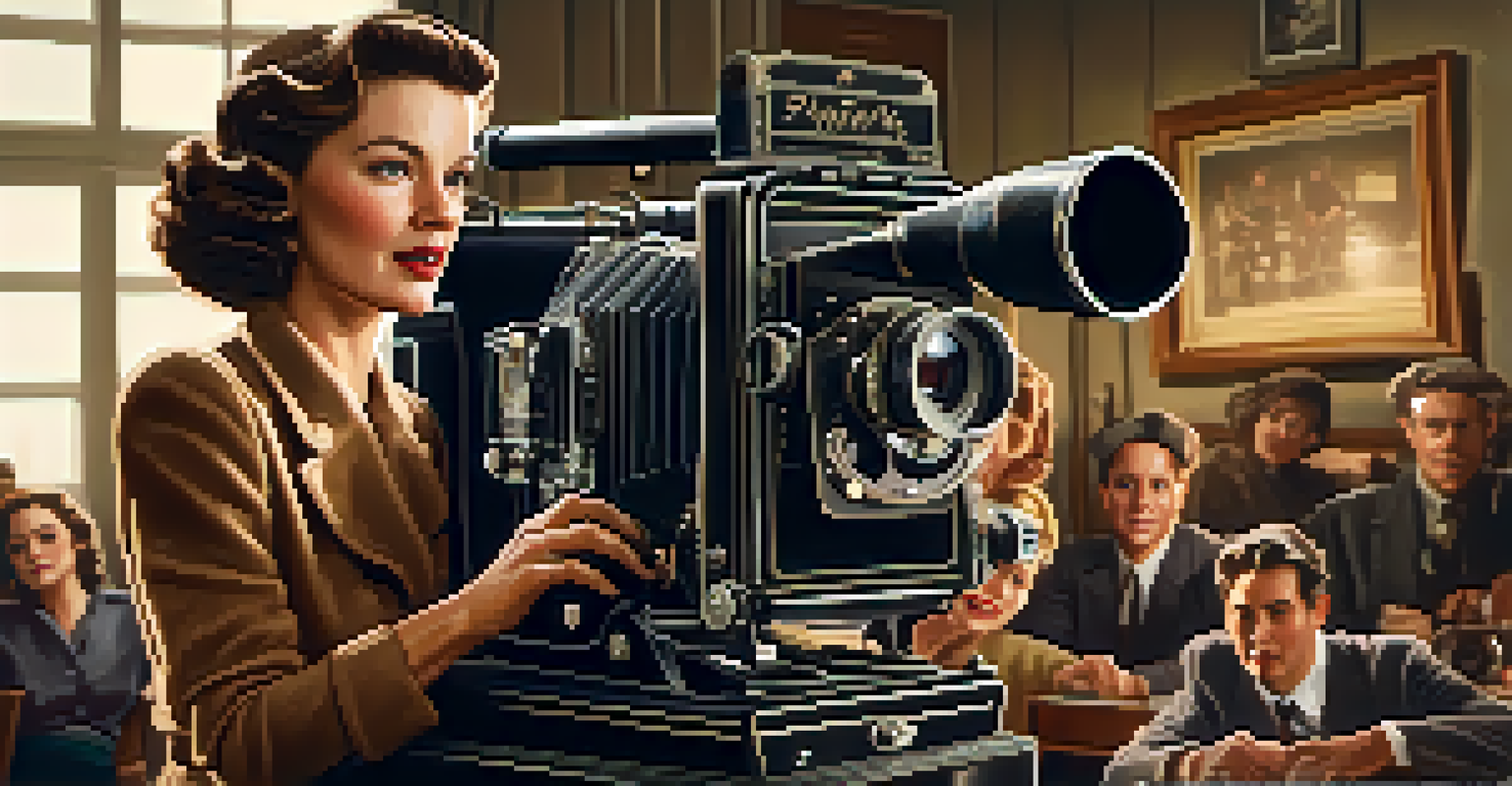Pioneering Women of Early Hollywood: Paving the Way Forward

The Silent Era: Women Defying Norms in Cinema
In the silent film era, women were not just present; they were pivotal. Actresses like Mary Pickford and Lillian Gish captured audiences' hearts while challenging societal norms. Their performances brought depth to female roles, allowing women to be seen as more than mere love interests.
The best thing about being a woman is that you can be anything you want to be.
Behind the camera, women like Frances Marion broke barriers as screenwriters and directors. Marion was one of the first women to win an Academy Award, demonstrating that talent knows no gender. These trailblazers not only entertained but also laid the groundwork for future generations.
The silent era set the stage for women to assert their influence in Hollywood, creating a ripple effect that would impact the industry for decades. As they pushed boundaries, they inspired a sense of possibility for women everywhere, proving that they could shape narratives just as powerfully as men.
The Golden Age: Women in Front of and Behind the Camera
As Hollywood transitioned into the Golden Age, women continued to make remarkable strides. Icons like Katharine Hepburn and Bette Davis became household names, showcasing their exceptional talent and determination. They often fought against typecasting and demanded more substantial roles, paving the way for complex female characters.

Meanwhile, women like Dorothy Arzner made significant contributions behind the camera. Arzner was the first woman to join the Directors Guild of America, directing films that challenged the status quo. Her work highlighted not just women's stories, but also the importance of women in the filmmaking process.
Women Pioneers in Early Cinema
Women like Mary Pickford and Frances Marion broke barriers in both acting and screenwriting, shaping the film industry significantly.
This era created a rich tapestry of female influence, blending on-screen talent with off-screen innovation. The impact of these women resonated through their films, which captured both the challenges and triumphs of women’s lives, setting the stage for the future of cinema.
The Role of Women in Early Studio Systems
In the early studio systems, women played crucial roles in shaping Hollywood’s landscape. From casting directors to producers, they held positions that were often overlooked but vital to the film industry. Women like Mary Pickford not only starred in films but also co-founded United Artists, giving artists more control over their work.
I think the greatest gift you can give your child is your time.
These women understood the business side of cinema, often navigating a male-dominated industry with ingenuity and resilience. Their strategic decisions helped foster a new generation of filmmakers and actors, ensuring that women were integral to the industry's growth.
The contributions of these women extended beyond the silver screen; they influenced how stories were told and who got to tell them. By establishing their presence in various roles, they laid a foundation for future female leaders in Hollywood.
Women and the Birth of the Studio System
The birth of the studio system in the 1920s and 30s saw women taking on diverse roles, from scriptwriting to editing. Women like Anita Loos and Frances Marion crafted stories that resonated with audiences, proving that female perspectives were essential to storytelling. Their work not only entertained but also challenged societal norms around gender and sexuality.
As studios began to recognize the financial power of female audiences, women’s roles in front of and behind the camera grew. This shift allowed women to assert their creative voices in ways that were previously unimagined, leading to more nuanced portrayals of women in film.
Impact on Film Genres
Female directors and writers influenced various genres, bringing depth and unique perspectives to storytelling in early Hollywood.
This era marked a significant turning point, as the contributions of women began to be acknowledged more widely. It set the stage for future generations to pursue careers in all facets of filmmaking, expanding opportunities for women in Hollywood.
Breaking Barriers: Women Directors in Early Cinema
While the film industry was largely male-dominated, several pioneering women directors made their mark. Directors like Lois Weber created films that tackled social issues, bringing a female perspective to the forefront. Weber's work often highlighted women's struggles, making her a significant figure in early cinema.
Despite facing significant challenges, these women pushed through to tell important stories. Their determination and creativity opened doors for other female filmmakers, showing that women could be successful directors. Their films often tackled complex themes, resonating with audiences and paving the way for future directors.
These trailblazing women served as inspirations for countless others, proving that passion and perseverance can break down barriers. They laid the groundwork for a more inclusive industry, encouraging future generations to pursue their dreams in filmmaking.
The Influence of Women on Film Genres
Women in early Hollywood didn’t just act; they shaped entire genres. The work of women like Dorothy Arzner and Jean Negulesco led to the emergence of genres such as melodrama, which often focused on the emotional lives of women. These films explored themes of love, sacrifice, and resilience, resonating deeply with audiences.
Moreover, women writers and directors brought unique perspectives to genres like comedy and romance. Their ability to blend humor with social commentary added depth to the narratives, making them relatable and thought-provoking. This influence helped redefine what genres could represent, paving the way for future filmmakers.
Legacy of Representation
The contributions of early Hollywood women paved the way for future generations, ensuring that women's voices remain integral to cinema.
Through their contributions, these women showcased the versatility of female storytelling. Their impact on various genres not only entertained but also encouraged discussions about women's roles in society, making their mark on the cultural landscape of cinema.
Legacy of Early Hollywood's Pioneering Women
The pioneering women of early Hollywood left an indelible mark on the film industry, influencing generations to come. Their stories of courage and creativity serve as powerful reminders of the importance of representation. By breaking barriers, they opened doors for women in all areas of filmmaking, from acting to directing.
Today, we see the ripple effects of their contributions in a more diverse and inclusive industry. Their legacy inspires current filmmakers and actresses to continue pushing boundaries, ensuring that women's voices remain integral to cinema. The films created during their time not only entertained but also sparked conversations about gender and equality.

Ultimately, these women didn't just pave the way for themselves; they paved the way for all women in the arts. Their dedication and passion continue to inspire those who seek to tell stories that reflect the complexity of the human experience, ensuring that their influence will be felt for many years to come.